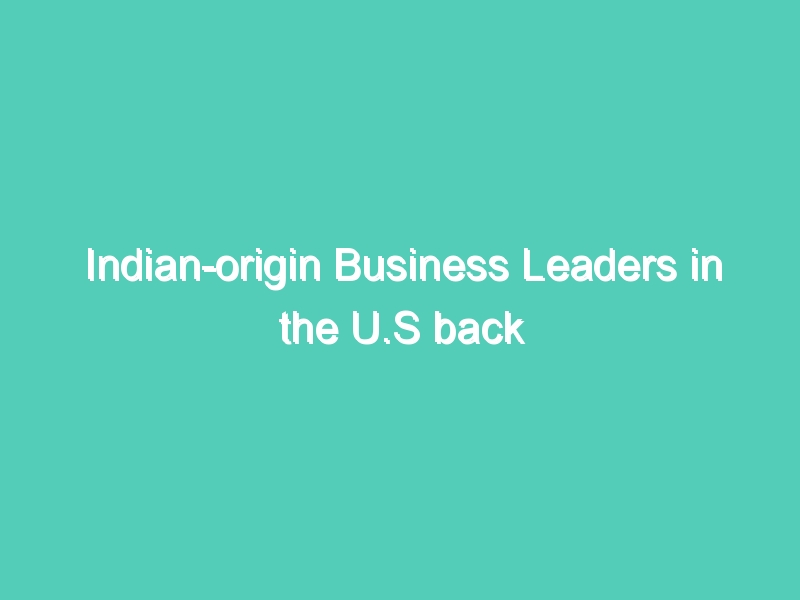Focus is on what can be controlled, they say
Indian-origin leaders of some of the biggest global companies came together on Wednesday to discuss diversity and their responses to the issues the Black Lives Matter (BLM) has highlighted.
The speakers at the virtual discussion were drawn from a list of Indians leading some of the biggest global corporations in 2020, put together by non-profit diaspora organization Indiaspora. The panel, which coincided with the launch of the list, discussed responses of some leaders on the list to movements for racial and gender justice, climate change and responding to the pandemic.
“Being an immigrant, sometimes you think you’re brown and you understand black people. Well, you really don’t. Their lives are quite different,” Ravi Saligram, who heads consumer products company Newell Brands, said.
Mr. Saligram’s journey understanding this issue faced by his African American colleagues included being surprised when he heard these colleagues say they tried hard to “assimilate” – a problem typically faced by immigrants.
Mr. Saligram talked about business leaders changing what can be controlled – such as the company they lead – so the lives there are impacted, and those lives touch other lives. Making the office a place where African Americans can “bring their whole selves to work” was another goal he committed to base on his intra-company consultations.
The Indiaspora Business Leaders List was drawn from the Fortune 500, Fortune Global 500, Forbes Global 2000 and the Forbes Largest U.S. Private Companies list. The list comprises the heads – mostly CEOs and presidents – of 58 companies, and includes names like Sundar Pichai of Google, Satya Nadella of Microsoft, Arvind Krishna of IBM, Raj Subramaniam of FedEx and Vasant Narasimhan of Novartis.
“The impact that the Indian diaspora is having in the realm of business is remarkable. It’s one of the reasons we launched this project, and we hope our lists will continue to raise the profile of those who have reached the very top of their fields while also serving as agents for positive change,” said Indiaspora founder M.R. Rangaswami, a Silicon Valley-based entrepreneur and investor.
The companies run by these Indian executives employ more than 3.6 million people across the world, have a combined market cap of over $ 4 trillion, Mr. Rangaswami said during the virtual conference.
“Many of our executives on the list have taken an active position in making sure we also stand along with the Black community…,” he said.
Some of the topics touched on during the discussion included the response to the pandemic, climate change and the gender dimensions of equality. Just five of the 58 companies were led by women, a situation Mr. Rangaswami called “appalling.”
The women on the list were Sonia Syngal, who heads GAP Inc., Revathi Advaithi, CEO of electronics manufacturer Flex, Reshma Kewalramani of Vertex Pharmaceuticals, Jayshree Ullal of Arista Networks (a computer networking company) and Sharmistha Dubey of Match Group, which owns match.com and other online dating platforms.
“We are committed to developing the next generation of leaders from all backgrounds, and I look forward to some of those names showing up on this list and others like it in the years to come,” Ms. Kewalramani said in a statement for the launch of the Leaders List.
Comment by Aryan Aggarwal: Indian-origin leaders of some of the biggest global companies came together on Wednesday to discuss diversity and their responses to the issues the Black Lives Matter (BLM) has highlighted. The impact of the Indian diaspora on the business of the United States was applauded, with the companies run by these Indian executives employing more than 3.6 million people across the world, have a combined market cap of over $4 trillion. However, the severe lack of action by said diaspora in support of BLM was heavily criticized, as well as the lack of women in leading positions.
Article compiled by: Aryan Aggarwal, Intern HRDI



